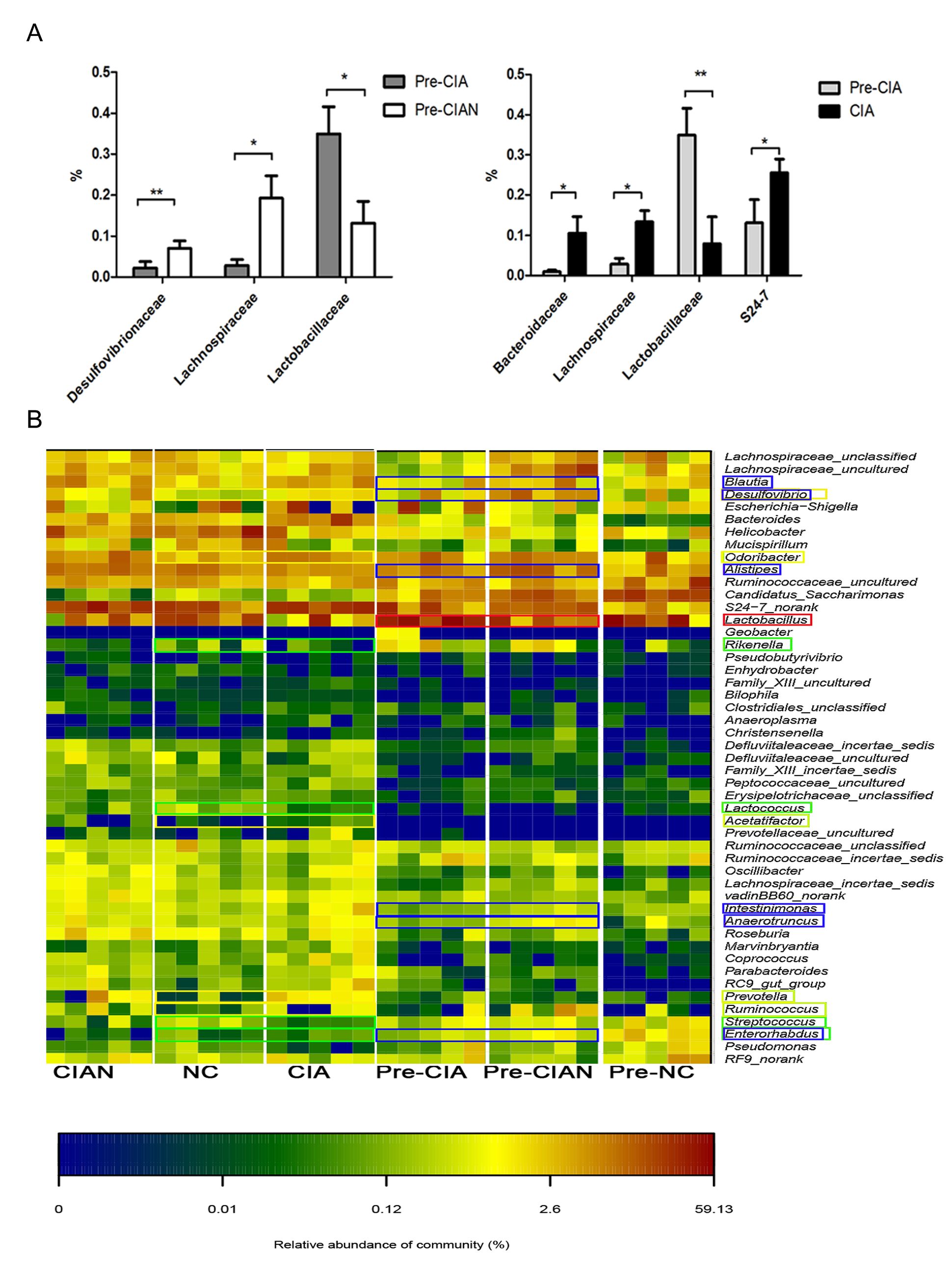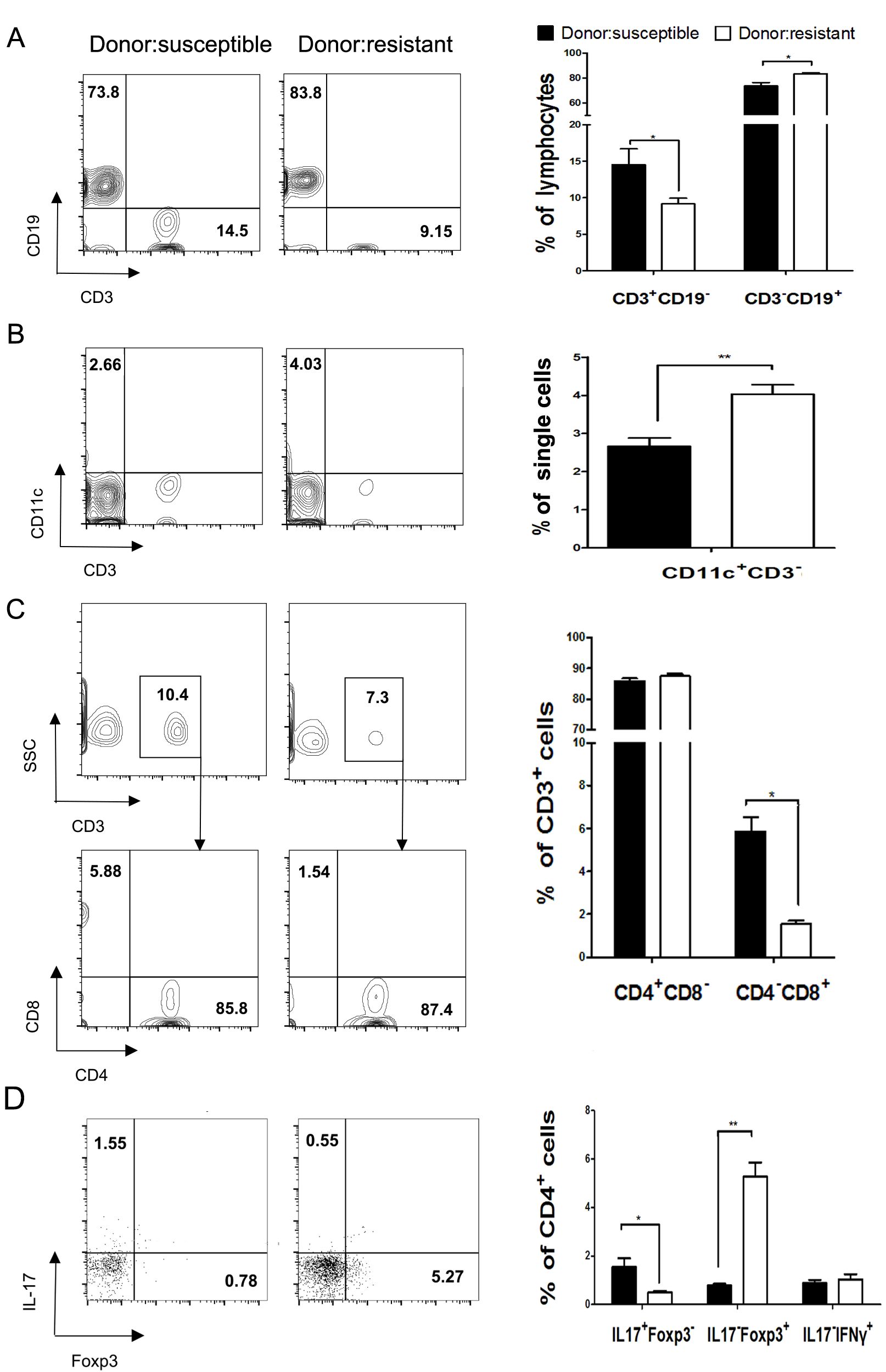Session Information
Session Type: ACR Concurrent Abstract Session
Session Time: 9:00AM-10:30AM
Background/Purpose: Genetics alone cannot explain most cases of rheumatoid arthritis (RA). Thus, investigating environmental factors such as the gut microbiota may provide new insights into the initiation and progression of RA.
Methods: In this study, we performed 16S rRNA sequencing to characterize the gut microbiota of DBA1 mice that did or did not develop arthritis after induction with collagen.
Results: We found that divergence in the distribution of microbiota after induction was pronounced and significant. Mice susceptible to collagen-induced arthritis (CIA) showed enriched operational taxonomic units (OTUs) affiliated with the genus Lactobacillus as the dominant genus prior to arthritis onset. With disease development, the abundance of OTUs affiliated with the families Bacteroidaceae,Lachnospiraceae,and S24-7 increased significantly in CIA-susceptible mice. Notably, germ-free mice conventionalized with the microbiota from CIA-susceptible mice showed a higher frequency of arthritis induction than did those conventionalized with the microbiota from CIA-resistant mice. Consistently, the concentration of the cytokine interleukin-17 in serum and the proportions of CD8+T cells and Th17 lymphocytes in the spleen were significantly higher in the former group, whereas the abundances of dendritic cells, B cells, and Treg cells in the spleen were significantly lower.
Conclusion: Our results suggest that the gut microbiome influences arthritis susceptibility. Figure Legends Figure 1. Differences in microbiome composition between CIA-susceptible and -resistant mice.  Figure 2.Analyses of faecal microbiomes of germ-free mice conventionalized with CIA-susceptible or CIA-resistant mice.
Figure 2.Analyses of faecal microbiomes of germ-free mice conventionalized with CIA-susceptible or CIA-resistant mice. 
Figure 3. Phenotypic analysis of splenocytes from germ-free mice conventionalized with the microbiota from CIA-susceptible or -resistant mice. 
To cite this abstract in AMA style:
Liu XF, Zou QH, Zhong B, Fang YF. Role of the Gut Microbiome in Modulating Arthritis Progression in Mice [abstract]. Arthritis Rheumatol. 2016; 68 (suppl 10). https://acrabstracts.org/abstract/role-of-the-gut-microbiome-in-modulating-arthritis-progression-in-mice/. Accessed .« Back to 2016 ACR/ARHP Annual Meeting
ACR Meeting Abstracts - https://acrabstracts.org/abstract/role-of-the-gut-microbiome-in-modulating-arthritis-progression-in-mice/
